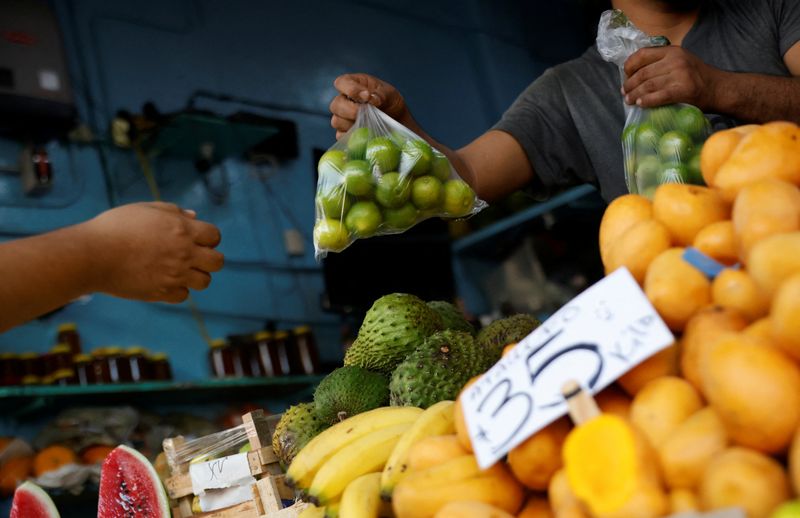Who is Kevin Hassett? Wolfe looks at the Trump ally tipped to become Fed Chair.
By Natalia Siniawski
MEXICO CITY (Reuters) - Mexico's statistics agency INEGI released data on Friday showing that inflation slowed more than expected, while growth exceeded forecasts, opening the door for the country's central bank to cut interest rates further next month.
Banxico, as the central bank is known, lowered its key rate by 25 basis points to 10.25% last week - its third consecutive rate reduction - in a unanimous decision by its five-member governing board.
In an interview with Reuters on Monday, the head of Banxico said the bank would likely continue cutting its key lending rate as inflation stays on its downward trajectory.
Annual inflation in Latin America's second-largest economy hit 4.56% in early November, down from 4.69% in the previous month, after edging up in the previous pair of two-week periods. Economists polled by Reuters expected an unchanged reading.
The reading is still well above the bank's 3% inflation target, plus or minus 1 percentage point.
Mexico's closely monitored core consumer price index, seen as a better gauge of price trends because it strips out volatile energy and food prices, came in below forecast at an annual 3.58%.
Kimberley Sperrfechter, emerging markets economist at Capital Economics, highlighted in a statement the relevance of easing core inflation, with a drop in both core goods and services.
"Services inflation fell below 5% for the first time in over two years, a positive for Banxico", she said.
"While services inflation is still high, it is showing signs of cooling, which supports the case for further rate cuts if the peso stabilizes," Alberto Ramos of Goldman Sachs said.
He added that core goods inflation, especially excluding food, remains low and there are no signs of significant pass-through from a weakened peso.
SOLID DATA, UNCERTAIN FUTURE
Mexico's economy expanded 1.1% in the third quarter compared with the previous period, slightly exceeding the 1.0% growth expected by economists, mainly driven by the primary sector, which includes farming, fishing, and mining, expanding 4.9%.
"Our economic growth will top expectations," Mexico's Economy Minister Marcelo Ebrard posted on X following the release of the GDP data.
In annual terms, the economy grew 1.6% compared with a year earlier, slightly above the 1.5% forecast by economists but slower than the 2.2% growth seen in the previous quarter.
The recent economic data has been affected by a sharp decline in Mexico's peso, which has weakened around 19% since June's election.
Despite a solid GDP in the third quarter, Ramos warned that "going forward, real activity is likely to face headwinds from post-election policy uncertainty, negative fiscal impulse, soft business confidence, and moderate external demand."
A series of post-election reforms have shaken investor confidence in the country's legal system, and uncertainty over the future of the critical Mexico-U.S. trade relationship following Donald Trump's election victory has further fueled concerns.
